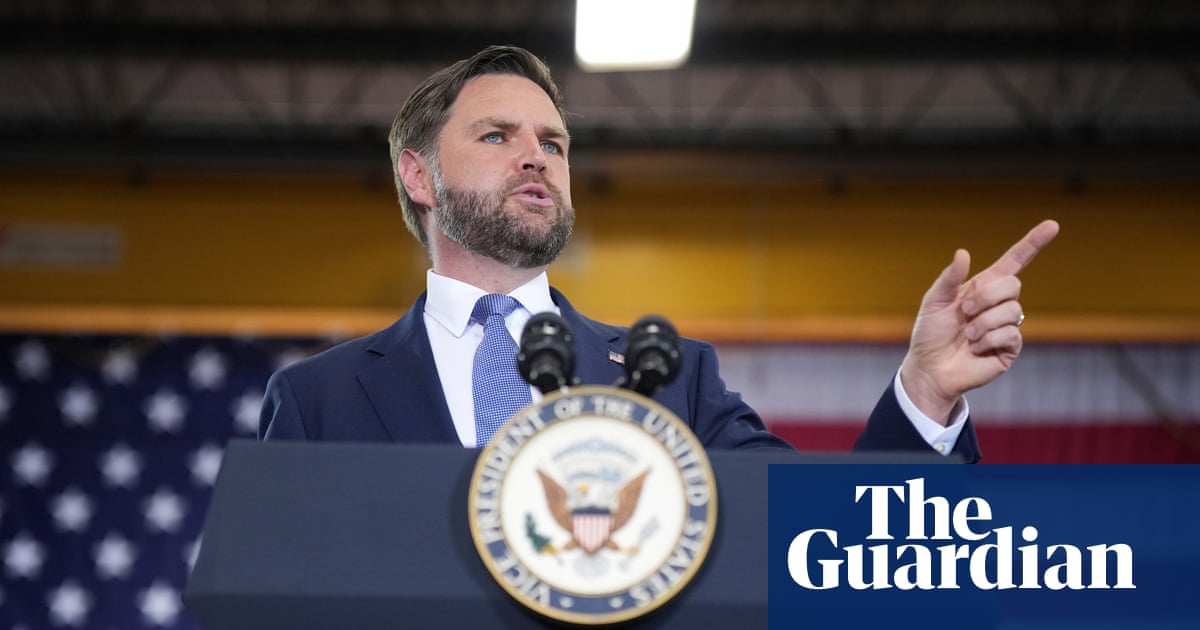A federal trade court on Wednesday blocked Donald Trump from imposing sweeping tariffs on imports under an emergency-powers law.
The ruling from a three-judge panel at the New York-based court of international trade came after several lawsuits arguing Trump has exceeded his authority, left US trade policy dependent on his whims and unleashed economic chaos.
“The Worldwide and Retaliatory Tariff Orders exceed any authority granted to the President by IEEPA to regulate importation by means of tariffs,” the court wrote, referring to the 1977 International Emergency Economic Powers Act.
“The court does not pass upon the wisdom or likely effectiveness of the president’s use of tariffs as leverage. That use is impermissible not because it is unwise or ineffective, but because [federal law] does not allow it,” a three-judge panel said in the decision.
The Trump administration has reportedly filed a notice of appeal, and White House officials responded to the ruling with public statements challenging the court’s authority in the case..
“It is not for unelected judges to decide how to properly address a national emergency,” Kush Desai, a White House spokesperson, said in a statement to Reuters.
Financial markets, in contrast, cheered the ruling. The US dollar rallied following the court’s order, surging against currencies such as the euro, yen and the Swiss franc in particular. Wall Street futures rose and equities across Asia also rose.
The ruling, if it stands, blows a giant hole through Trump’s strategy to use steep tariffs to wring concessions from trading partners, draw manufacturing jobs back to US shores and shrink a $1.2tn US goods trade deficit, which were among his key campaign promises.
Without the instant leverage provided by the tariffs of 10% to 54% that Trump declared under the IEEPA, which is meant to address “unusual and extraordinary” threats during a national emergency, the Trump administration would have to take a slower approach of lengthier trade investigations under other trade laws to back its tariff threats.
The decisions of the Manhattan-based court of international trade, which hears disputes involving international trade and customs laws, can be appealed to the US court of appeals for the federal circuit in Washington DC, and ultimately the US supreme court.
At least seven lawsuits are challenging the levies, the centerpiece of Trump’s trade policy. Tariffs must typically be approved by Congress, but Trump says he has the power to act because the country’s trade deficits amount to a national emergency. He imposed tariffs on most of the countries in the world at one point, sending markets reeling.
The plaintiffs argued that the emergency powers law does not authorize the use of tariffs, and even if it did, the trade deficit does not meet the law’s requirement that an emergency be triggered only by an “unusual and extraordinary threat.” The US has run a trade deficit with the rest of the world for 49 consecutive years.
Trump imposed tariffs on most of the countries in the world in an effort to reverse America’s massive and longstanding trade deficits. He earlier plastered levies on imports from Canada, China and Mexico to combat the illegal flow of immigrants and the synthetic opioids across the US border.
His administration argues that courts approved then president Richard Nixon’s emergency use of tariffs in 1971, and that only Congress, and not the courts, can determine the “political” question of whether the president’s rationale for declaring an emergency complies with the law.
Trump’s “liberation day” tariffs shook global financial markets and led many economists to downgrade the outlook for US economic growth. So far, though, the tariffs appear to have had little impact on the world’s largest economy.
While Stephen Miller, the White House deputy chief of staff for policy, greeted the news of the ruling with a public social media post claiming “the judicial coup is out of control”, Trump did not immediately post a response on Truth Social. He responded on his platform instead to what he characterized as a favorable ruling in another lawsuit, in which he is suing the Pulitzer board, which awards America’s most prestigious journalism prizes.
The tariffs lawsuit was filed by a group of small businesses, including a wine importer, VOS Selections, whose owner has said the tariffs are having a major impact and his company may not survive.
A dozen states also filed suit, led by Oregon.
“This ruling reaffirms that our laws matter, and that trade decisions can’t be made on the president’s whim,” Oregon attorney general Dan Rayfield said.
Reuters and the Associated Press contributed reporting

.png) 3 months ago
100
3 months ago
100

















































